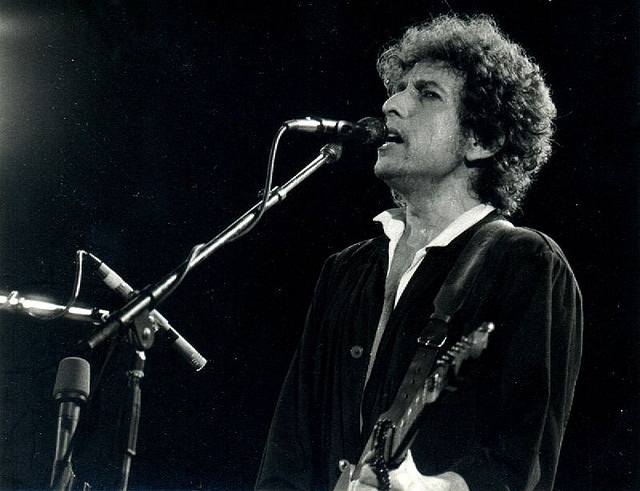“For having created new poetic expressions within the great American song tradition”- Professor Sara Danius Permanent secretary of the Swedish Academy
With the announcement that the Nobel Prize for Literature has been awarded to singer-songwriter Bob Dylan, the secretary for the Swedish Academy, Sara Danius, stated to freelance journalist Sven Hugo Persson that “He can be read and should be read, and is a great poet in the English tradition.” [1] Bob Dylan is said to be one of the most influential singer-songwriters of the twentieth century, but there is some bemusement and frustration after he was awarded the Nobel Prize, historically attributed to authors and poets. He now joins the ranks of the 113 Nobel Laureates who have been awarded the prize since its inception in 1901, who include William Golding, Ernest Hemingway, and John Steinbeck.
Bob Dylan was born Robert Allen Zimmerman in Minnesota in 1941, after briefly attending college before he moved to New York and began his recording career in 1961. He is most well-known for his country and folk songs. He continued to reinvent himself over the following decades, and his work brings words and music together in a unique and original way. [2]
His work has been compared to Homer’s Odyssey, bringing the old traditions of the travelling bards, of song and music into the modern day. [3] Should we be giving music and songwriters more credit for keeping these traditions alive and relatable to a modern audience? Modern poets such as Kate Tempest write and perform their poems to music with a great amount of passion. They struggle as songwriters struggle and a good performance can bring their words alive. While poetry can seem intimidating, music can help the words flow, creating a whole world full of character and life.


The closer I looked at Dylan’s lyrics, the harder I found it not to see them as poetry; they have been a part of many people’s lives and make both personal and political statements. His work offers a chronology of both social and civil issues not unlike many authors and poets. We still look to Homer, Austen and Shakespeare to give us a window into their lives and times. Perhaps in a hundred or a thousand years Dylan’s songs may be seen as a window into the issues, society and people of the 20 the century.
Come writers and criticsWho prophesize with your penAnd keep your eyes widethe chance won’t come againAnd don’t speak to soonFor the wheels still in spinAnd there’s no tellin’ whoThat’s its namin’For the loser nowWill be later to winFor the times they are a-changing
Lyrics from Bob Dylan’s The Times They Are A-changing, 1964. Columbia Records.
[1] Sara Danius (2016) <http://www.nobelprize.org/mediaplayer/index.php?id=2630> [online video], accessed on the 18th October 2016.
[2] Available from <http://www.rollingstone.com/music/artists/bob-dylan/biography> accessed 18th October 2016.
[3] Sara Danius (2016) <http://www.nobelprize.org/mediaplayer/index.php?id=2630> [online video], accessed 18th October 2016.
Cara Bradbury
Cara is a first-year English BA (Hons) student at the University of Bolton.

